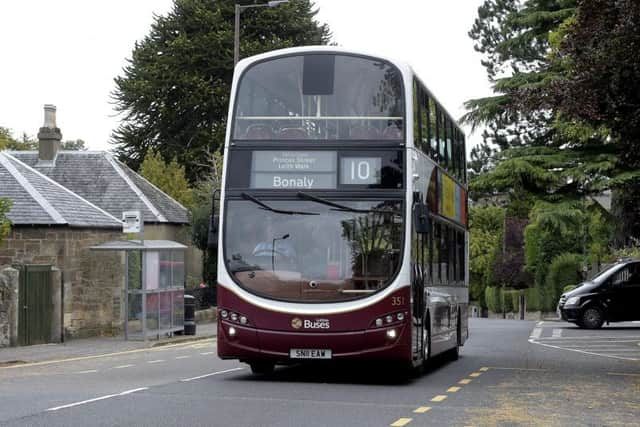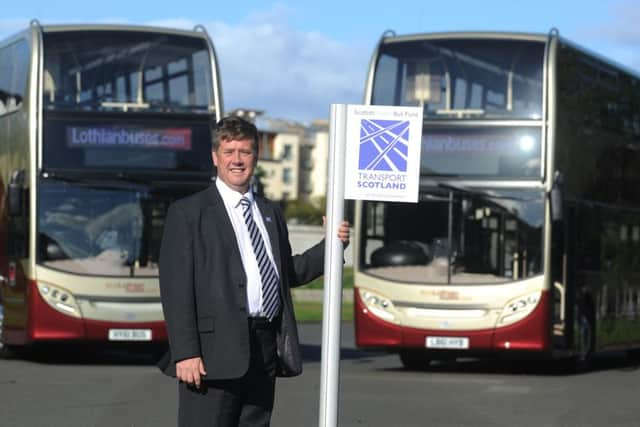Lothian Buses ditch eco-friendly fleet after '˜battery issues'
and live on Freeview channel 276
The fleet of 15 electric-diesel double-deckers, introduced on Lothian Buses’ No 10 route from Western Harbour to Bonaly and Torphin seven years ago, were recently withdrawn and replaced by diesel buses to the dismay of some passengers.
Sources in the company said the hybrid buses were having “battery issues” with the “hilly” route and most are now being retrofitted with diesel engines.


Advertisement
Hide AdAdvertisement
Hide AdThe buses, the first hybrid double-decker fleet to operate in Scotland, were launched at Holyrood in 2011 by the then Transport Minister Keith Brown. They cost £5 million, of which £1m was funded by the Scottish Government’s Green Bus Fund and they were said to cut carbon emissions by 30 per cent.
Colinton councillor Jason Rust said: “There has been much concern locally as to why the hybrid buses serving Colinton which were launched to huge fanfare in 2011 have now been replaced by older buses. This is seen to be a retrograde step given the positive reviews of the service.”
He said he had approached Lothian Buses for an explanation but had received no official response.
“Given the predicted fuel efficiency and environmental benefits, one has to question what technical or other reasons have resulted in the hybrids being discarded. If it is as a result of the hybrids not being able to cope due to battery issues and now having to be retrofitted with diesel engines as has been suggested this seems a pretty ridiculous turn of events.


Advertisement
Hide AdAdvertisement
Hide Ad“The service would seem to be going downhill since the buses cannot make it up hill.”
John Gooding, from Colinton, who uses the bus every day, was a big fan of the eco-friendly vehicles. He said: “It seemed to be the dawn of a new era in public transport.”
As well as being better for the environment, they also had a voiceover telling passengers the next stop, a digital map showing the route and more comfortable seats
He said: “These buses were put in with a fanfare but now they have disappeared without a word of explanation.
Advertisement
Hide AdAdvertisement
Hide Ad“We need to know: if these buses were unsound, what exactly was unsound? If they were unsound why did they buy them in the first place?”
Lothian Buses said the buses now operating on the No 10 route were the same age as the previous ones – and although they were diesel, their engines met higher pollution standards.
A spokeswoman said: “We allocate vehicles to routes based on the operational requirements of the business.
“Over 76 per cent of our fleet is Euro 5 standard or above with a mix of diesel, hybrid diesel and pure electric, including an investment in 99 additional hybrid diesel vehicles purchased since 2011.
Advertisement
Hide AdAdvertisement
Hide Ad“All our fleet are fully capable of operating as required within the city and we have a range of buses with different passenger capacities and engine sizes, which give a wide range of differing performance all of which meets the required standards of operation.”